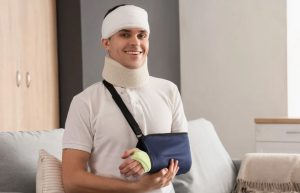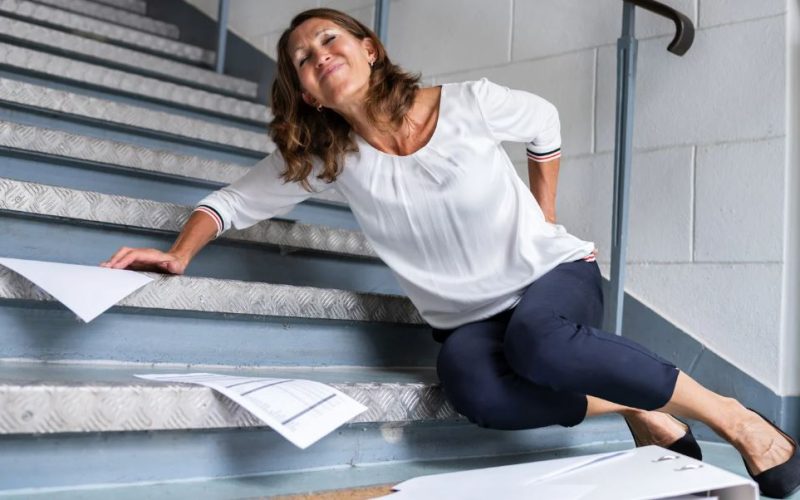Accidents can happen anywhere. On the streets of Camden, in an office in Canary Wharf, or even while boarding the Tube at Oxford Circus. For Londoners, the pace of the city and its dense infrastructure mean that a simple misstep can quickly become a serious injury.
Whether it’s a pavement slip, a cycling accident, or a workplace injury, knowing where to turn for help can make all the difference: legally, financially, and emotionally.
In this article, we’ll explore the most common types of personal injuries Londoners face. The steps you should take after an accident, and how expert legal support from professionals such as personalinjurysolicitorslondon.co.uk can help you recover your losses and rebuild with confidence.
Understanding Personal Injuries in London

London is a dynamic city with over 8.9 million residents, thousands of construction sites, and a public transport system that serves millions daily. With that level of activity, accidents are inevitable but that doesn’t mean they’re unavoidable or unaccountable.
According to the Health and Safety Executive (HSE), over 565,000 non-fatal workplace injuries were reported across the UK in 2023. Many of these occurred in London, where industries such as construction, hospitality, and logistics dominate.
The city’s aging pavements and busy public spaces also contribute to a steady rise in public liability claims. These are injuries caused by poorly maintained roads, uneven footpaths, or unmarked hazards.
Understanding what counts as a personal injury and how the claims process works is crucial for anyone living or working in the capital.
Common Causes of Personal Injury in London
While no two cases are identical, most personal injury claims fall into a few major categories. Knowing where your situation fits can help you act faster and more effectively.
1. Pavement and Public Place Accidents
Uneven paving stones, wet surfaces without warning signs, or damaged curbs are common hazards in busy boroughs like Westminster or Hackney. Local councils have a duty to maintain public walkways; if they fail, and you’re injured, you may have grounds for compensation.
2. Workplace Accidents
From slips in office kitchens to falls on construction sites, workplace accidents are among the most common personal injury claims. Employers are legally required under the Health and Safety at Work Act 1974 to provide safe working environments.
3. Road Traffic and Cycling Accidents
With thousands of cyclists and e-scooter riders sharing London’s roads, traffic-related injuries are rising. Whether you’re a pedestrian, cyclist, or driver, negligence from others, including speeding, poor signage, or careless driving can lead to significant harm.
4. Public Transport Incidents
Trains, buses, and the Underground are vital parts of daily London life. Accidents like falls on wet station platforms or injuries during sudden stops may entitle victims to compensation if safety procedures were breached.
5. Accidents in Shops and Restaurants
Commercial establishments owe a duty of care to their customers. A wet floor in a café or a broken stair in a shopping centre can result in liability if proper maintenance or warnings were neglected.
What to Do After an Accident?

When you’re injured, confusion and stress often set in. But taking the right steps immediately can make your recovery smoother and strengthen your case later on.
Here’s what experts recommend:
1. Seek medical attention immediately: Even minor injuries can worsen without prompt treatment. A hospital or GP report also serves as crucial legal evidence.
2. Document everything: Take clear photographs of the scene, your injuries, and any relevant signage or hazards.
3. Gather witness information: If anyone saw the incident, ask for their contact details. Their testimony could support your claim.
4. Report the incident:
- For public spaces: Contact the local council or property owner.
- For workplaces: Inform your employer and ensure it’s recorded in the accident logbook.
- For road incidents: Notify the police and your insurance provider.
5. Keep records of expenses: This includes medical bills, travel costs, and lost wages — all of which may be recoverable through compensation.
6. Consult a specialist solicitor: Legal guidance can help determine liability, assess damages, and handle negotiations with insurers.
Taking these actions early gives you a strong foundation for a potential personal injury claim.
How a Solicitor Can Help?
Personal injury claims can be complex especially in London, where multiple parties (councils, companies, or insurers) may be involved. That’s why working with experienced professionals, such as Personal Injury Solicitors London, can make a significant difference.
A dedicated solicitor will:
- Evaluate your claim: They’ll assess whether negligence occurred and estimate your potential compensation.
- Gather evidence: Solicitors handle the process of obtaining CCTV footage, medical reports, and witness statements.
- Negotiate with insurers: Insurers often undervalue early claims. Expert negotiation ensures fair compensation.
- Manage time limits: In most UK cases, you have three years from the accident date to make a claim.
- Work on a No Win, No Fee basis: Many firms operate under this structure, meaning you only pay if your case succeeds.
The combination of legal expertise and emotional support helps victims navigate an otherwise stressful process while focusing on recovery.
Building a Strong Claim: The Technical Process

Personal injury law follows a structured process designed to protect both claimants and defendants. Here’s how it typically unfolds:
Step 1: Initial Consultation
Your solicitor will review the circumstances of the accident, medical evidence, and potential liability. This is often done free of charge.
Step 2: Evidence Gathering
This includes collecting photos, witness statements, and any relevant CCTV footage. Solicitors also request medical assessments to understand long-term effects of the injury.
Step 3: Claim Notification
A formal claim is sent to the responsible party (e.g., a council, employer, or insurer), outlining the incident and compensation sought.
Step 4: Liability Decision
The defendant investigates and either admits or denies responsibility. If admitted, negotiations on compensation begin immediately.
Step 5: Settlement or Court Proceedings
Most claims settle out of court, but if liability or damages are disputed, the solicitor can escalate the case to a civil court for judgment.
Each step requires precision, documentation, and timing which is why legal representation is so valuable.
The Broader Impact of Injury Claims
Beyond financial compensation, personal injury claims help hold organizations accountable. Councils fix broken pavements faster when faced with liability. Employers enhance workplace safety following claims.
Ultimately, these cases contribute to making London safer for everyone, not just those directly involved.
And while no amount of money can undo trauma, fair compensation can cover medical expenses, therapy, and lost income, allowing victims to recover without financial strain.
Final Thoughts
London’s fast pace and crowded spaces make accidents a part of daily life. But suffering from one shouldn’t mean facing the consequences alone.
From pavement slips to workplace injuries, understanding your rights and acting quickly are the keys to fair compensation. Expert help is only a call away.
When you need trusted legal guidance and a compassionate advocate on your side, reach out to professionals like Personal Injury Solicitors because every Londoner deserves safety, justice, and support when the unexpected happens.









